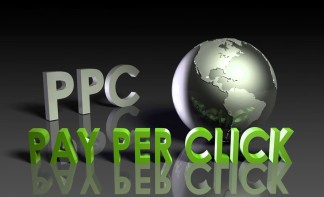 What is PPC?
What is PPC?
PPC is pay-per-click marketing on Google’s search engine network and Bing/Yahoo’s search engine. Instead of “organic” listings such as SEO where algorithithms decide where you rank, with PPC you can have your ad placed at the top of the page or the right-hand column by being charged a small fee every time someone clicks on your ad.
Why do small businesses need PPC? Isn’t SEO enough?
PPC is great for quick results. You pay only when your ad is clicked on, not for when it is shown. When a consumer clicks on your ad it takes them directly to the web page you indicate. SEO is very important to the health of your website, and it is free, but there is no guarantee on where your website will rank and it can take time. SEO can take 3 to 6 months to show results in ranking and visibility. But with PPC, you can get your business on the first page and even at the top of the page in seconds.
But we have a small budget and isn’t PPC expensive?
PPC can be costly at first, especially for businesses with a small marketing budget. However YOU can control the cost as well as measure the results. With Google Adwords or Bing Adcenter you can set it up to track revenue, ROI, CPAs (cost per action), conversions, leads, goals and more. You can see exactly what you are spending and getting in return. Many companies make money with even a small PPC budget. As the saying goes, sometimes you have to spend money to make money.
What if I already rank first? Do I really need PPC?
Many businesses already show up well in the organic search results and wonder why they need PPC. You may have a great organic presence but there are always PPC ads listed above organic search results, including your competitors. It can’t hurt to have the top organic spot as well as the top PPC ad spot. This way you are dominating more of the page and your competitors have less room to catch the consumer’s eye.
Do I advertise (pay) for my brand name?
Should you bid on your brand keywords? It’s a popular question many businesses ask. Normally it is a good idea. Brand keywords such as your company name are usually much cheaper than other keywords. Also, many times your competitors may bid on your name as well, and you don’t want your competitor’s ad to show up when people are searching for your brand. We suggest setting aside a small budget with a campaign for brand-based keywords, but spend the majority of your budget on non-brand keywords.
How do I begin?
Google makes AdWords Express for people who are not experienced with AdWords. It is simple for any user to simply submit a few keywords and ads and Google does the rest. But keep in mind that the less control you exercise, the more control you are giving Google. When you let them manage your campaign, you may get some irrelevant traffic and higher CPCs in exchange for minimal work on your part.
If you are savvy with internet marketing, you can set up your own account on AdWords/Bing AdCenter. Both programs will help you start your campaigns with step-by-step instructions. You should monitor daily and adjust bids. The whole process can be time consuming and a bit complex to get the best ROI, but some businesses enjoy it and prefer to be totally hands-on.
Lastly, you can hire a marketing company to run your PPC campaigns for you. Although you will be paying for them to set up and monitor your campaigns, this option provides you with experienced professionals who can run your ads and watch your spend and revenue daily, freeing you up to run your business.






